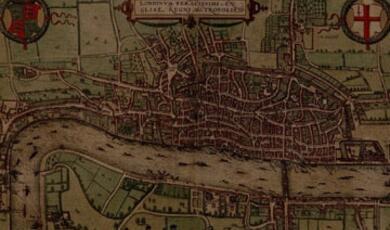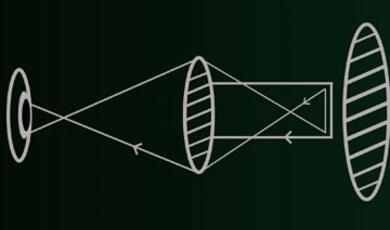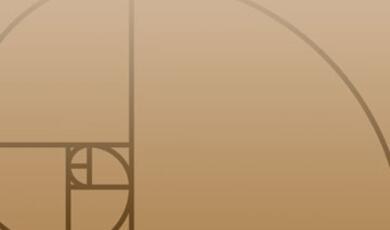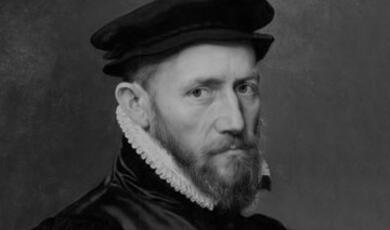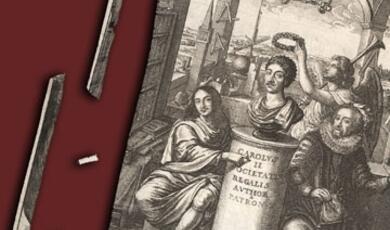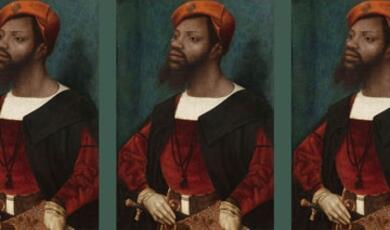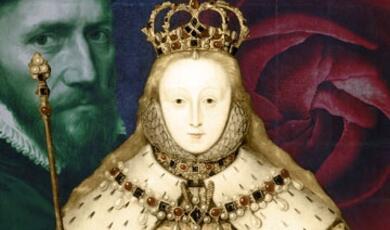Savour the history of Sir Thomas Gresham and his age in our celebration of 500 years since the birth of one of the City of London’s greatest benefactors. Gresham College gives you a series of unforgettable lectures and events about the College’s founder and benefactor, a merchant, financier and adventurer. In an age of violence, rivalries and persecutions, Sir Thomas Gresham was inspired by the new learning in the adventurous and magnificent Tudor Age to promote education that was free and open to all.
Dr Ian Archer explores how London was crucially dependent on continental Europe for its economic resilience in the mid-sixteenth century, and how Sir Thomas Gresham’s fortune piggy-backed off the special relationship with Antwerp. The Reformation put the relationship under real strain. This wasn’t a sixteenth-century Brexit, but it posed similar challenges. How did England cope?
Many of Gresham’s contemporaries would say, that global trade and traffic altered sixteenth-century England beyond recognition. From its food, fashion, and language, to the look and feel of its cities and neighbourhoods. Professor Nandini Das looks at how London’s subjects responded to this transformation. Using contemporary print and theatre, she discusses how England and Englishness were defined, even as the boundaries between the home and the world became increasingly diffuse.
Thomas Gresham lived from 1519 to 1579. The first telescope was designed in 1608 in the Netherlands and first pointed at the heavens by Galileo a year later. The greatest discoveries since the pre-telescope era have been that of the existence of many other planets around distant stars, and the vastness of the universe. So much has happened since Gresham’s era, yet many of the questions about our cosmic origins remain. Professor Joseph Silk explores.
Tudor London is variously reported as a squalid seething mass of humanity choking on its own filth and fumes, and as a delightful garden where babbling brooks and sweet flowers tickled the senses of people such as Elizabeth I, Shakespeare and Erasmus. Drawing on evidence from contemporary maps, paintings and writings, and modern environmental science, Professor Carolyn Roberts offers a virtual walk around the City with Sir Thomas Gresham, evaluating these different perspectives on the city’s air, water, soil and wildlife.
Much has happened in the 500 years since the birth of Thomas Gresham, and mathematics is no exception. Most mathematicians were then in awe of the Greeks and felt that little had been done since. But the start of modern mathematics soon followed, marked by the solution of the cubic equation. Professor Chris Budd reviews the last 500 years of progress in maths.
‘Go to the Exchange, crave gold as you intend’ wrote William Haughton in Englishmen for My Money (1598). Sir Thomas Gresham's first great contribution to the life of London was the Royal Exchange, the purpose-built merchants' bourse which opened in 1567. Professor Stephen Alford asks why Gresham financed and built it? What Londoners (and others) did there? And what the Exchange tells us about Gresham's ambitions both for himself and for London?
A final illustrated lecture will be presented by Dr John Guy to commemorate the 500th anniversary of the birth of Sir Thomas Gresham. The lecture will be based on Dr Guy’s new biography chronicling the colourful life of Sir Thomas Gresham.


 Login
Login

